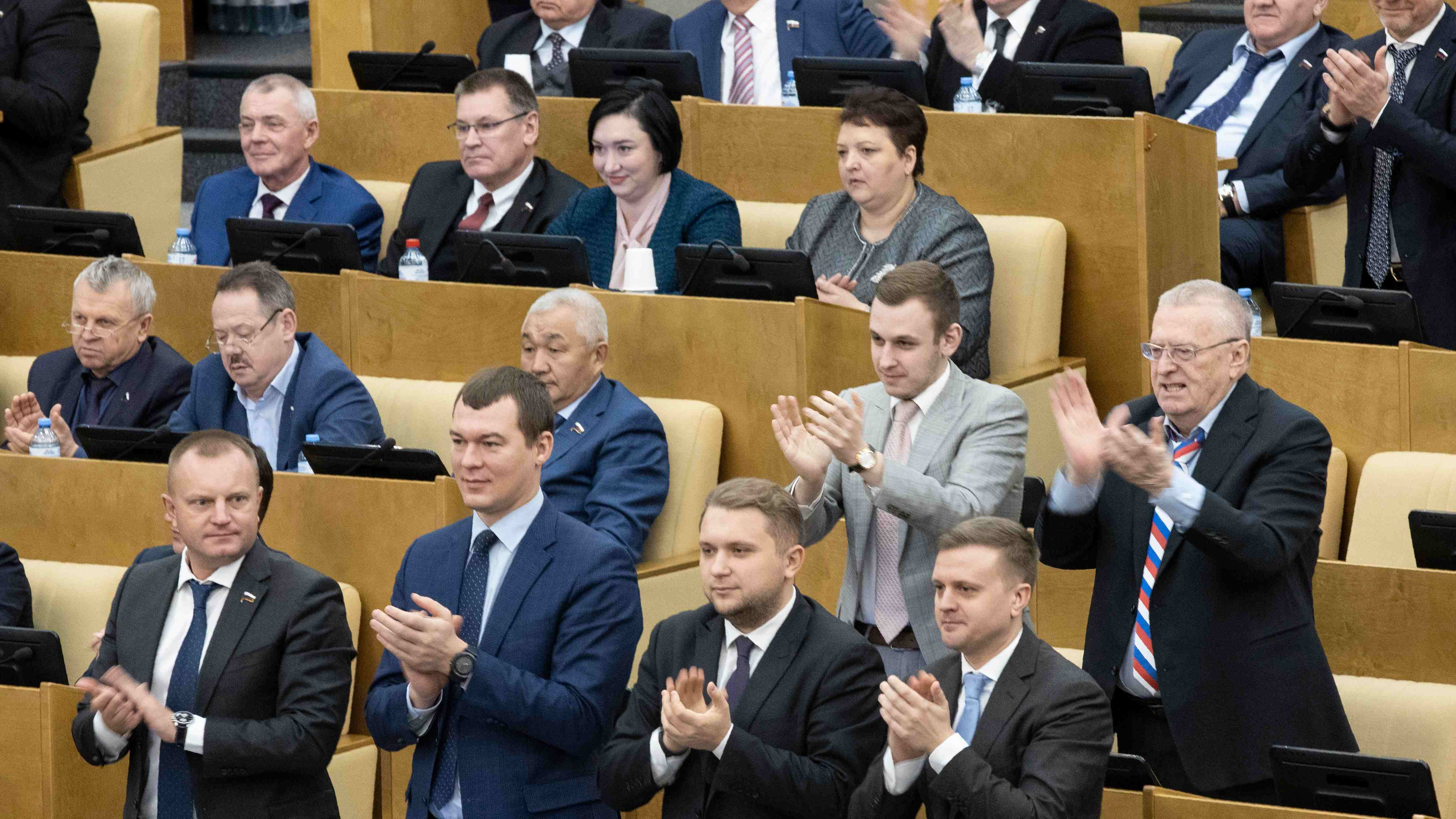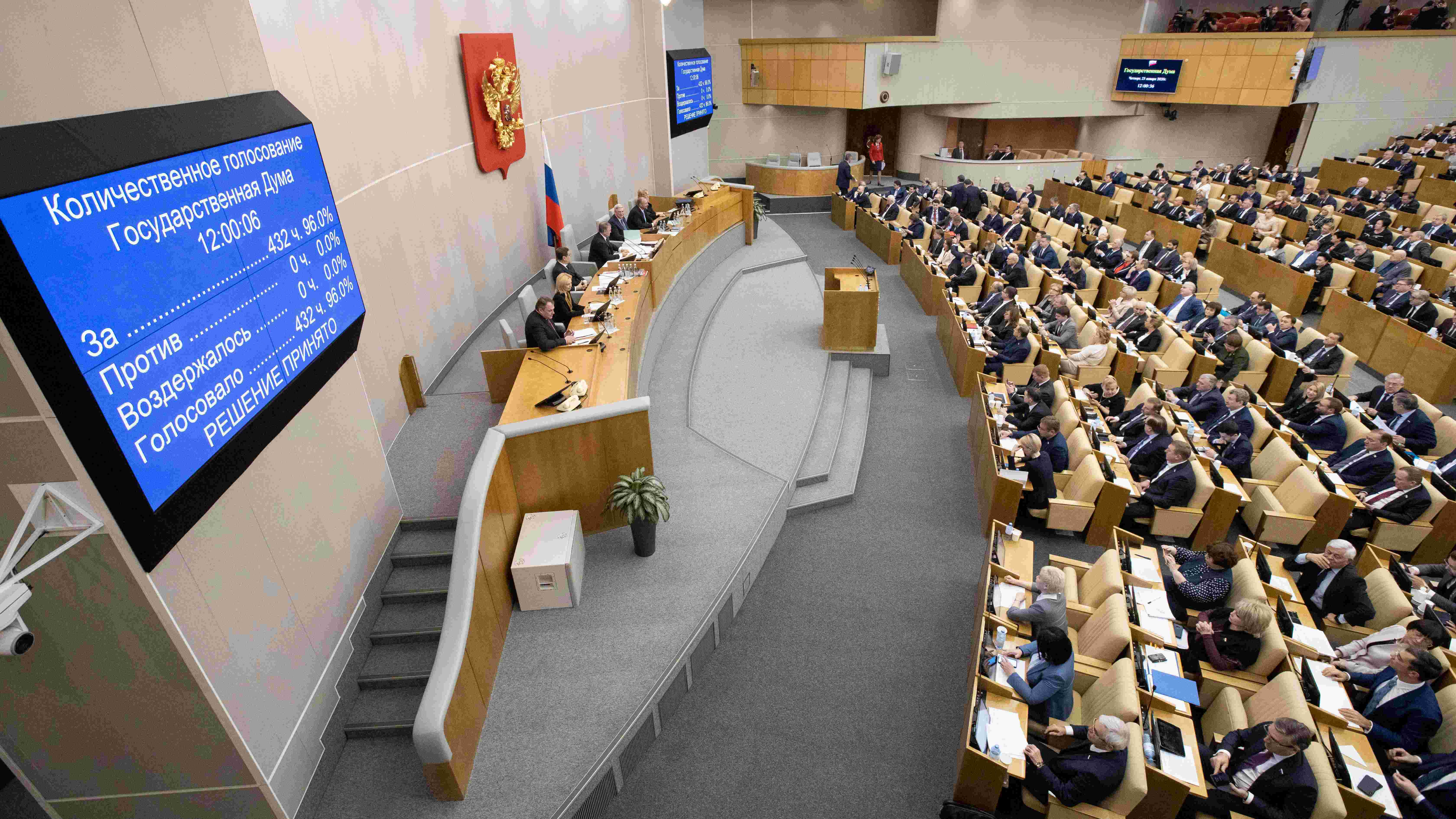
Russian lawmakers applaud after voting for Russian constitutional amendments during a session at the Russian State Duma, in Moscow, Russia, January 23, 2020. /AP Photo
Russian lawmakers applaud after voting for Russian constitutional amendments during a session at the Russian State Duma, in Moscow, Russia, January 23, 2020. /AP Photo
Lawmakers in Russia's lower house State Duma on Thursday unanimously approved a bill to amend the constitution submitted by President Vladimir Putin, in the first of three readings.
All 432 lawmakers present voted in favor of the bill, part of Putin's major reform plan unveiled last week, after debating the proposed amendments for two hours.
"This was a powerful show of unity," speaker Vyacheslav Volodin said after the vote by the pro-Putin chamber.
The Communist faction in parliament, despite voting for the bill, will prepare suggestions for the second reading, said party leader Gennady Zyuganov.
The second reading, usually considered key for Russian bills, is expected on February 11, Volodin said.

Russian lawmakers vote for Russian constitutional amendments during a session at the Russian State Duma, in Moscow, Russia, January 23, 2020. /AP Photo
Russian lawmakers vote for Russian constitutional amendments during a session at the Russian State Duma, in Moscow, Russia, January 23, 2020. /AP Photo
Putin submitted the amendments to the State Duma, Russia's lower house of parliament, on Monday, just several days after presenting them in the annual state-of-the-nation address last week.
He suggested that lawmakers could name prime ministers and Cabinet members, proposed a greater role for the State Council, an consultative body of regional governors and federal officials.
The proposed changes, he argued, would bolster democracy.
It gives the parliament more say over Cabinet ministers' appointment, and also emphasizes that the president should retain the power to dismiss the prime minister and Cabinet ministers and remain in charge of the Russian military and law enforcement agencies.
The draft also modifies the constitution to limit a president to two terms altogether, unlike the current version containing a limit of two consecutive terms.
The current Russian constitution, in effect since 1993, was written under then president Boris Yeltsin.